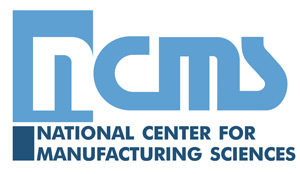Applying Conditioned Based Maintenance to CNC Machines for Improved Throughput and Lower Costs
NCMS Project #: 142071
Problem: CNC machines are durable, long lasting pieces of capital equipment that can be relied upon for their dependability. Despite their reliability, programming complexity, and other capabilities, small issues can lead to frustrating maintenance and quality problems which impacts project cost, schedule, and quality.
Benefit: The completion of these tasks will serve as an example to the commercial industry in providing better, safer, and more cost-effective technologies and processes to mill parts and better maintain and sustain capital equipment across a wide array of industries.
Solution/Approach: This initiative will leverage recent improvements in commercial CNC machine technologies and processes as a pilot for the Army’s Rock Island Arsenal, to demonstrate applicability across other organizations facing similar challenges. This new CNC technology includes innovative predictive/CBM maintenance and HMI capabilities which will be evaluated to determine what impact they can have on quality, throughput, and cost efficiencies. These new technologies will be applied to the maintenance and sustainment project for the Abrams Main Battle Tank M256 Breach and Cannon system.
Impact on Warfighter:
- Reduce maintenance and sustainment costs
- Decrease scrap waste and environmental impacts
- Protect health and safety of workforce
- Increase machine availability
- Maximize efficiencies
- Strengthen warfighter readiness
DOD Participation:
- Program Executive Officer, Ground Combat System (PEO GCS)
- Tank Automotive Command Integrated Logistics Support Center
- Rock Island Arsenal
Industry Participation:
- Fives Machining Systems Inc.
- Mazak Corporation
- NCMS
Benefit Area(s):
- Cost savings
- Repair turn-around time
- Maintenance avoidance and reliability
- Maintenance management improvement
- Improved readiness
- Reliability improvement
Focus Area:
- Advanced/additive manufacturing
